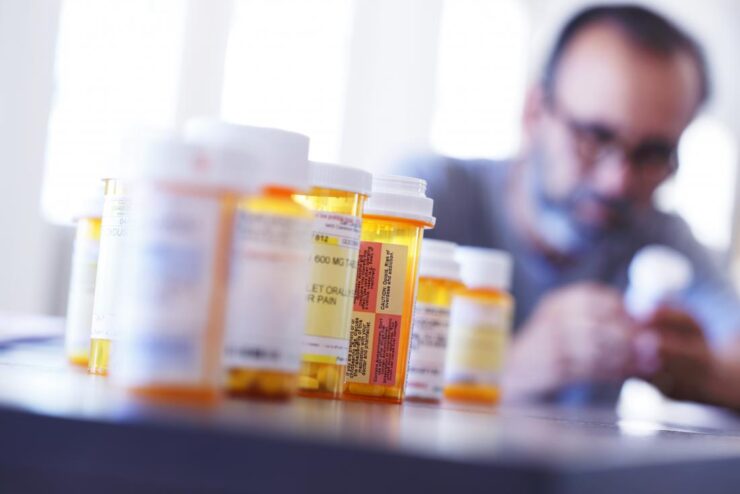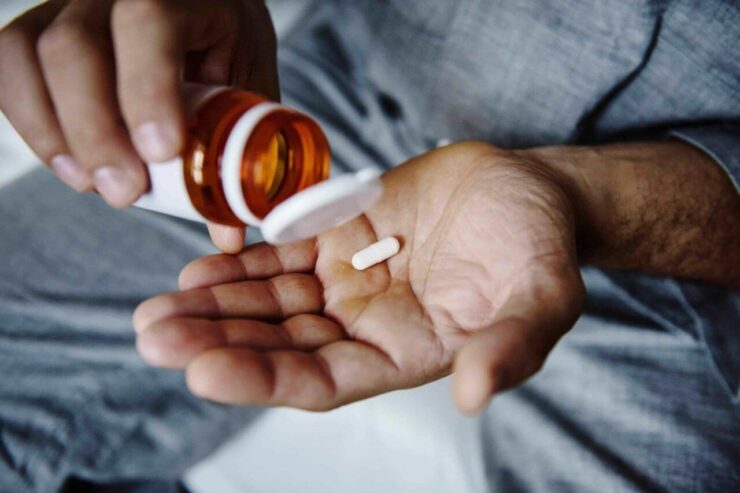Opioids are a dangerous and very addictive class of drugs. If you are one of the courageous individuals that have decided to take a step towards recovery from opioid abuse, you should know that this is a lifetime journey that requires great commitment and a strong, supportive social system.
If you are already receiving treatment for opioid abuse, there are five vital mistakes you should avoid making:
Page Contents
Thinking it is possible to do it alone

Opioid abuse often results in severe addiction. Thinking that you can quit alone after joining a drug rehab center like The Edge Treatment is one of the biggest mistakes you should avoid. Accepting help from members of your group therapy and other medical professionals in the rehab center you have joined will help make your recovery easier and more comfortable.
A strong social support system is one of the essential requirements of treatment for opioid abuse. A support system helps you reduce stress, loneliness, and shame. Building a strong support system will also help you get important advice on how to work on your recovery and give you a sense of accountability.
The medical detoxification stage is among the most challenging stages of recovery. Therefore, you require as much help as you can get from the staff at the rehab center. Accepting their assistance will help make the process safer and more comfortable for you and will also increase the chances of a successful withdrawal.
Having unrealistic expectations
Balancing your expectations when all you wish for is to have a quick recovery can be difficult. Expecting too much often leads to great disappointment and negativity, which will ultimately affect your recovery. You should focus on your new habits and give your brain and body time to adjust to living without an opioid slowly.
You need to be very committed to practicing new skills and behaviors so that they will become habits and will be hard to change even after leaving the drug rehab center. This helps you recover faster in the rehab center and effective long-term sobriety from substance abuse.
Learning new behaviors takes more than two months. Your brain structure and chemistry also take a long time to normalize your neurotransmitter levels. Therefore, you need to set your mind on the recovery and not how long the process will take. This way, you will avoid frustrations that may come with the slow pace.
Unrealistic expectations can also stem from making goals without all the important information. It would be best if you made goals after informative therapy sessions. Your therapist can also guide you in making realistic goals that you can realize during your getting-better process.
Comparing your recovery with others

People are different and the time taken for recovery is unique for every individual. Showing off when you think you are recovering faster than others may lead to social isolation among your recovery group. Instead, you should support others and help them to make progress in their recovery too.
On the other hand, you should not let a slow recovery pace affect you. Some people in the rehab center may recover faster than you, but this does not mean that you are not making progress. Comparison will blind you from your own progress and may make you view the getting-better process negatively.
Avoid the mistake of comparison. Remember, this isn’t a competition. Rather than looking at others’ progress, use your set goals and values to judge how much progress you are making. Appreciate your own efforts and work towards making today better than yesterday.
Refusing to address your mental health
Opioid abuse affects your mental and emotional wellbeing. Therefore, mental health treatment should be a crucial part of a rehabilitation program. Mental health concerns that arise from opioid abuse include anxiety disorders, post-traumatic stress disorder, bipolar disorder, major depression, and personality disorders. Treating mental and emotional conditions is a crucial part of recovering from substance abuse.
When identifying a drug rehab center, it is important to choose a center that has the necessary equipment to handle severe mental disorders. Resisting mental evaluation and treatment while in a rehab center is also a big mistake.
Mental illness and emotional needs not addressed act as a huge trigger to the use of substance abuse. Many people who go through traumatic events may find themselves on the path to opioid abuse. This means that not addressing these health problems can quickly lead to relapse for a recovering patient.
Getting the right help from a recognized drug rehab center that offers professional mental services will help put an end to the vicious cycle of recovery and relapse.
Getting complacent

The initial stages of recovering from opioid abuse are challenging. After some time, the process becomes easier, but progress might feel slower. Unfortunately, after many months have gone by, you may become complacent and neglect parts of the plan initially laid out by the rehab center.
Neglecting important parts of your recovery is a mistake as it may lead to negativity, bitterness, and potentially depression because there will be no notable progress. At this point, it is important to get back to the recovery plan and make sure you follow it to the letter. You should take time for self-care by ensuring you eat, sleep well, exercise, and spend time around positive people.
Addiction to opioids is a chronic condition that requires tremendous discipline at all times. It would be best if you follow the plan to prevent a relapse. Remember, you are not supposed to stop taking prescribed medication because you feel better. Discipline works the same way; you will only continue to feel better as long as you are actively working toward your recovery.
Being informed of the mistakes, you are bound to make the first step towards avoiding them. For a smooth and long-term recovery, it is best to avoid all mistakes discussed above. May you have a progressive recovery and a happy, healthy life after your treatment.

